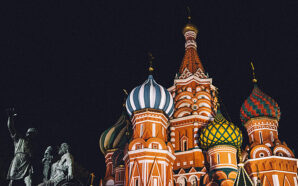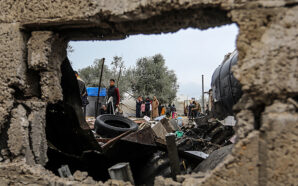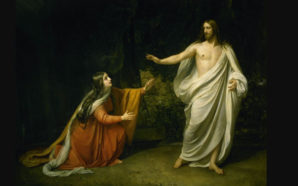For the past two years, the Australian National Dictionary Centre at ANU has chosen as its Word of the Year linguistic icons with a distinct COVID-19 flavour. Both 2020’s word, iso (short for isolation), and 2021’s word, strollout (the delayed vaccine rollout), reflect how deeply the pandemic has impacted our culture, our way of life, even our spirituality.
In September 2021, McCrindle Research surveyed 1,000 Australians on the theme of spirituality in a post-COVID climate. The findings, which were collated in a document titled Australia’s Changing Spiritual Climate, might surprise you. We might assume that the challenges of a pandemic, such as iso and strollout, might lead people to disconnect from their faith and spirituality. But this is not the case. The research found that almost half of those surveyed are engaging more with areas of faith and spirituality post-COVID.
How do these results connect with our Diocese of Parramatta?
Fr Robert Riedling, Dean of St Patrick’s Cathedral, sees the results as a positive outcome of this challenging year. “I am not surprised by the results”, he says, “as tragic events tend to have the effect of turning our minds more towards the divine, whatever that may mean for a person, especially in light of reflecting on our mortality.” Bernadette Ho, Pastoral Formation Facilitator with the Mission Enhancement Team (MET), felt similarly encouraged when she read the statistics, as they indicated people are really searching for God. She was particularly reassured by the finding that it’s younger Australians who are leading the way in this search. “As a mother of a nineteen-year-old daughter, sometimes I worry that she does not have faith. These findings are reassuring – young people are certainly questioning the meaning of life, are exploring and open to spiritual conversations. I find myself questioning too – I am not alone in that!”
The importance of spirituality for youth also resonated with Donnie Velasco, Pastoral Formation Facilitator with the MET. “Youth do care about the way in which they investigate the faith question”, he says. “How can we as Church be attuned to those kind of questions?”
The COVID pandemic has led us to think more about deeper issues; in fact, the research shows that almost half of those surveyed are thinking more about the meaning of life, and a third are thinking more about God than they were before. Fr Robert spent much of 2020 in the United Kingdom, and says this time was particularly challenging, especially when he would hear of the growing number of deaths each day or conduct funerals for COVID victims. “These numbers of victims were more than a little frightening and certainly made me reflect on my own mortality and hold up in prayer those parishioners I knew who were elderly and vulnerable”, he says. Despite this, he felt a strengthening in his prayer life, particularly in praying for “pro-life” issues, and in his vocation as a priest. “People expressed gratitude for what amounted to a small effort on my part”, he says, “and it helped me to understand that grand gestures and efforts are often not what people are looking for from their clergy, just reassurance and a listening ear.”
Bernadette says she found herself looking forward to that quality time with God. “My daily walks and conversation with God were a time of renewal and the part of my day I looked forward to the most”, she says. “There were such a range of emotions I was experiencing – I shared them with God when I was out in nature. I would return home feeling comforted, often I would notice a shift in perspective and mostly I felt gratitude for the space to share with God.”
Donnie also experienced a shift in his faith practice during the time of COVID lockdown. “I was talking with a colleague about availability and intentionality”, he says. “She shared how we intentionally make ourselves available to the other, or in this sense, how we make ourselves available to spiritual and religious practices. My wife and I have just had our first child, Jonathan. In our morning routine during lockdown, without any intention or planning, we started trying to teach Jonathan how to make the Sign of the Cross. Now we’re talking about how to make that a nighttime ritual, and a lot of those decisions have come from recognising what the faith framework has done for us growing up. It was the memory of what has been and trying to make it real for ourselves now.”
One of the most significant findings from this research is that two-thirds of Australians would attend a church service online (64%) or in person (67%) if personally invited. It’s this theme of invitation, and then of listening to people’s stories and questions, that resonated strongly with Bernadette, Donnie, and Fr Robert. “Personal invitation matters, and it’s important to develop a culture of invitation in which warm, welcoming, approachable, personal invitation is key”, Bernadette says. Donnie echoes these words. “Belonging seems to be the hinge in which younger generations are more curious and open to the process of belief.” Fr Robert acknowledges the strong invitational quality and resources of our Diocese, which can truly help satisfy spiritual thirst. “With our terrific resources, both people and materials, we are able to help those who were already connected with their faith but may have a lot of questions, concerns or doubts as a result of the Covid situation over the past eighteen months”, he says. “How to determine this? Listening!”
The findings of Australia’s Changing Spiritual Climate are encouraging, inspiring and energising. “They fire up a desire within me to be part of a community who is excited to engage, to listen, and to be curious”, Bernadette says. “It’s a privilege to meet people where they are at and accompany them on their journey of faith.” For Fr Robert, the survey’s findings show that the efforts made to connect during lockdown cannot be ignored. “There has been a fundamental shift in how church is “done” and we can either embrace that and benefit society as a whole or we can ignore that and have our mission fizzle out”, he says. “I believe that God is speaking to us on this side of the pandemic, as God always does in extraordinary times. Again, it is up to us to listen to God’s voice and respond.”
The Australia’s Changing Spiritual Climate survey was conducted by McCrindle Research in September 2021, and explores the ways in which Australians have connected with issues of faith and spirituality during and following the COVID-19 lockdown. You can access a snapshot of the survey’s findings here.








